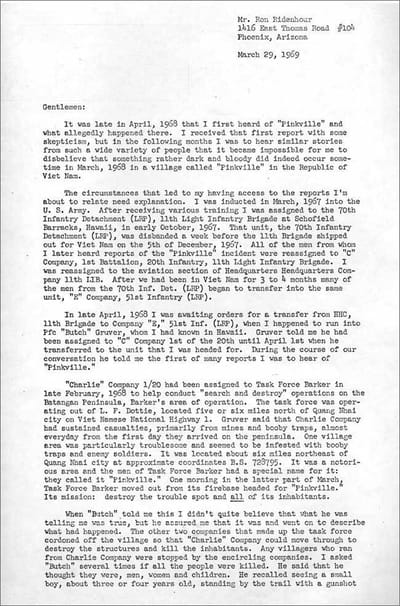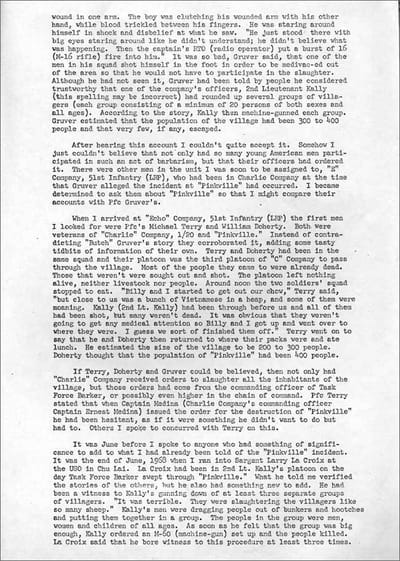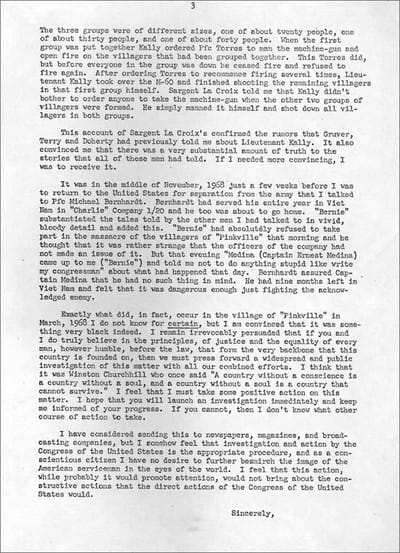March 29, 1969. The date that Ronald Ridenhour, a 23-year-old recently returned veteran from Vietnam would pen a letter to President Richard M. Nixon, Defense Secretary Melvin R. Laird, and members of Congress sharing his findings and the moment that would serve as inspiration for the Ridenhour Prizes.
“Gentlemen,” he began, “It was in late April, 1968 that I first heard of ‘Pinkville’ and what allegedly happened there.” In the pages that followed, Ron Ridenhour became the whistleblower who prompted investigations of My Lai, the worst known atrocity of the Vietnam War. While he was still deployed, Ron sought out soldiers who had witnessed the massacre. “I became determined to ask them about ‘Pinkville,’” he wrote.
In an early demonstration of the skills that would later serve him so well as an investigative journalist, Ron tracked down American servicemembers who were there that day, persuaded them to tell him what happened, and included their stories in his letter calling for an investigation. In doing so, he prevented a cover-up and changed the way American citizens thought and talked about the war in Vietnam.
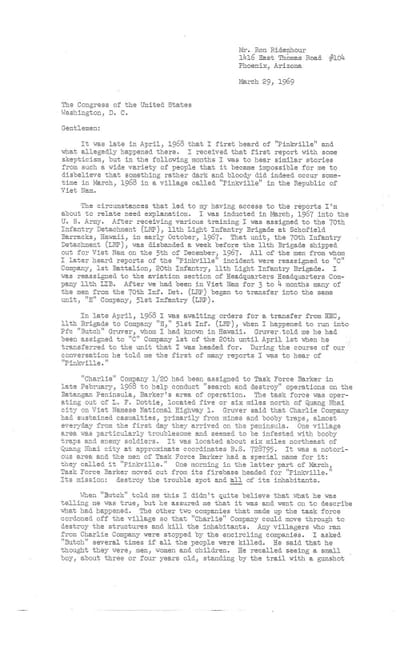
In his letter, Ron explained to his elected representatives why he’d taken these extraordinary steps: “I remain irrevocably persuaded that if you and I do truly believe in the principles of justice and the equality of every man, however humble, before the law, that form the very backbone that this country is founded on,” he wrote, “then we must press forward a widespread and public investigation of this matter.” The Ridenhour Prizes were created to memorialize that spirit of fearless truth-telling, a spirit Ron Ridenhour displayed throughout his life and career. Ron’s courage and commitment to justice are reflected in all our honorees, each of whom have persevered in acts of truth-telling that strengthen our democracy and illuminate a more just vision of society.
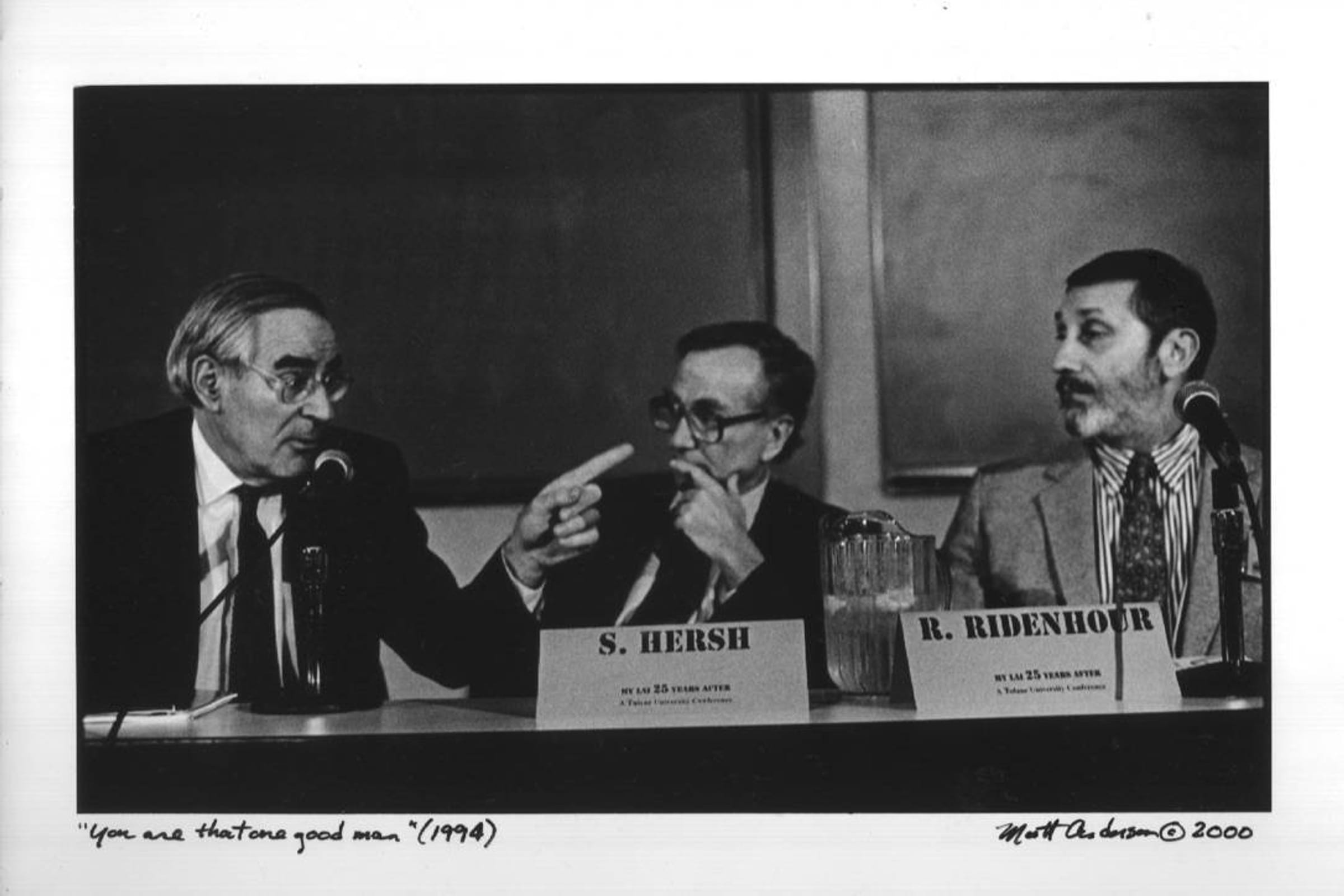
Left to right: David Halberstam, Seymour Hersh, Ron Ridenhour on the Journalism during the Vietnam War panel at the 1994 Tulane University conference celebrating the 25th anniversary of Ron’s letter to Congress. Halberstam quotes Robert Kennedy’s favorite quotation from Emerson and points to Ron: "'If one good man plant himself on his conscience, the whole world will come round.' You are that one good man.” Photo: Matt Anderson (c) 1994
